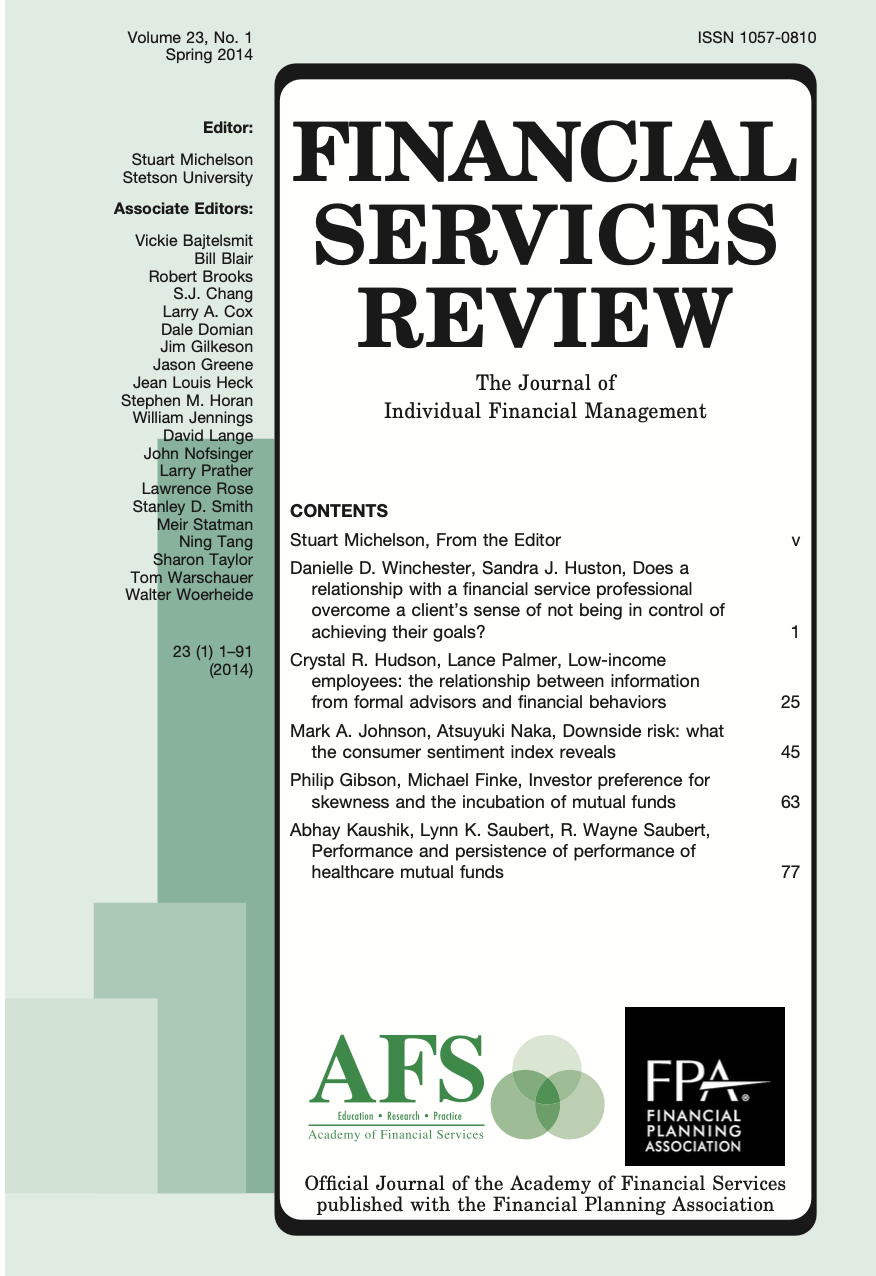Downside risk
what the consumer sentiment index reveals
DOI:
https://doi.org/10.61190/fsr.v23i1.3185Keywords:
Long-horizon regression, Asymmetric response, Downside risk, Consumer sentimentAbstract
This article examines the ability of consumer sentiment for different age groups to forecast short-term as well as long-term equity returns. Using a long-horizon asymmetric response regression format, we show that negative changes in sentiment have a greater influence on stock returns than positive changes in sentiment. Our findings are supportive of the prospect theory. However, we observe that younger individuals appear to be less risk-averse than older individuals. We provide evidence that reminds individual investors and financial planners that risk is an important consider- ation when investing, and that demographic characteristics matter when determining appropriate investing approaches and risk tolerance.
Downloads
Published
How to Cite
Issue
Section
License
Copyright (c) 2014 Academy of Financial Services

This work is licensed under a Creative Commons Attribution-NonCommercial 4.0 International License.
Author(s) retain copyright and grant the Journal right of first publication with the work simultaneously licensed under a Creative Commons Attribution-NonCommercial 4.0 International License that allows to share the work with an acknowledgment of the work's authorship and initial publication in this Journal.
This license allows the author to remix, tweak, and build upon the original work non-commercially. The new work(s) must be non-commercial and acknowledge the original work.


